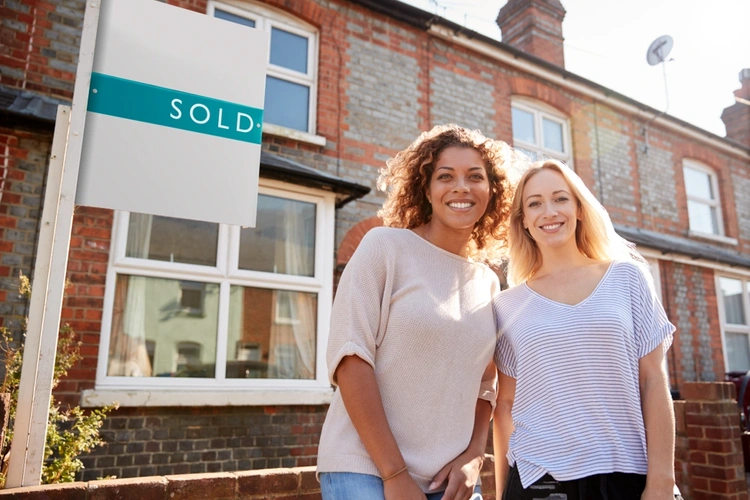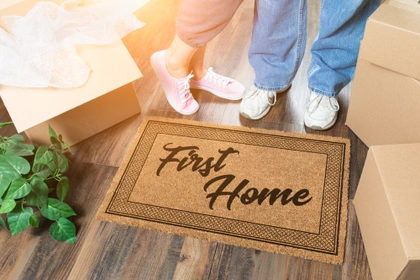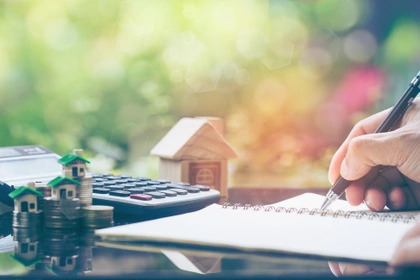Are you a first-time buyer if you inherit a property?
No, you aren’t classed as a first-time buyer after you inherit a house. So, lenders won’t see you as a first-time buyer if you go on to purchase a property in the future.
What happens if you’re a first-time buyer, but your partner isn’t?
If you’re a first-time buyer and want to get a joint mortgage with someone who has owned a property before, you will lose your first-time buyer status.
You would only keep your first-time buyer status if you apply for a mortgage in your sole name, or you apply with someone who is also a first-time buyer.
Are there any perks?
There are several benefits of being a first-time buyer, including:
- You may appear more attractive to sellers – as having no chain can speed up the house sale process. Having no chain means you don’t need to sell a property in order to buy a new one.
- There’s less stamp duty to pay – currently, first-time buyers in England and Northern Ireland don’t pay stamp duty on houses up to £425,000. This threshold is due to drop to £300,000 from 1st April 2025. People who aren’t first time buyers will have to pay stamp duty on any amount over £125,000 from April.
- Government help is available – for example, through the First Homes scheme, which offers 30-50% off new-build homes. And the Right to Buy scheme, which enables most council tenants to buy their home at a discount.
Steps to becoming a first-time buyer
- Assess your finances - before you start house hunting, take a good look at your finances. How much can you afford to spend on monthly mortgage repayments? Consider your savings, income, and any debts you might have.
- Get a mortgage in principle (MIP) - This step is crucial as it gives you a clear idea of how much you can borrow and shows sellers that you’re serious.
- Find an estate agent - A good estate agent can help you find homes that fit your needs and guide you through the buying process.
- Start house hunting – This is the fun part. Start looking at homes in your desired area. Make a list of must-haves and nice-to-haves to help narrow down your choices.
- Make an offer - Once you find the perfect home, it’s time to make an offer.
- Get a house survey - before finalising the purchase, it can be useful to get a survey to make sure there are no hidden issues with the property.
- Close the deal - this involves signing a lot of paperwork, but once it’s done, you’ll get the keys to your new home.
How much deposit do you need?
The amount you need to buy a house will vary depending on:
- your budget
- the price of the property you want to buy.
Minimum 5%-10% deposit
With the mortgage guarantee scheme (open until 30th June 2025), you might be able to get a 95% mortgage with a 5% deposit.
For example, to buy a house worth £300,000, you’d need at least a £15,000 deposit.
Benefits of a larger deposit
It’s usually best to put down as large a deposit as you can afford because a bigger deposit may:
- mean you borrow less on a mortgage – and pay less interest overall as a result
- help your application get approved – as you’ll appear less risky to lenders
- reduce your monthly repayments - as you won’t need to borrow as much on your mortgage
- give you access to lower interest rates – as you will have a lower loan-to-value
Loan to value (LTV) is the percentage of what you owe on your mortgage in relation to the current property value.
Remember to keep some money back for extra costs like surveys, stamp duty, removals, and conveyancing fees. It’s also wise to set some money aside in case of an emergency.
Remortgage to reduce your outgoings by £100s per month
- We compare 100s of mortgage deals
- Get FREE no obligation, expert advice
- Get extra cash for other purposes
Mortgages are secured against your property. This means your home may be at risk if you fall behind with your mortgage repayments.
Note, the more you borrow and the longer your mortgage term, the more interest you'll pay in total.
Disclaimer: We make every effort to ensure content is correct when published. Information on this website doesn't constitute financial advice, and we aren't responsible for the content of any external sites.






